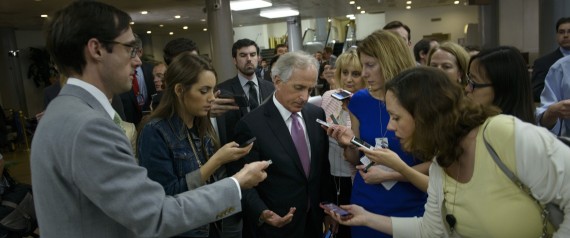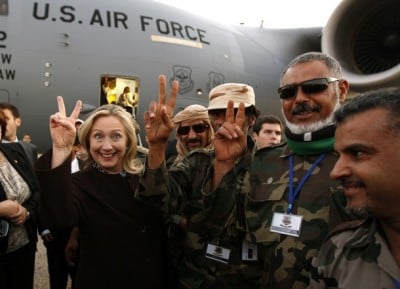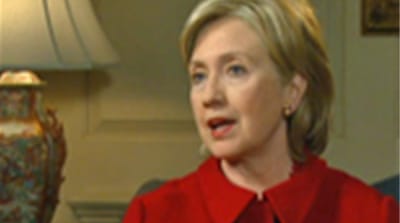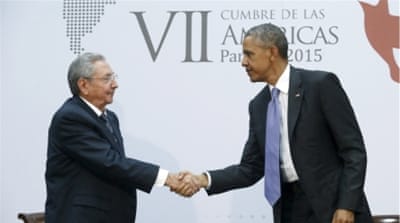WHAT
is new about the “refugee crisis” which appears to have engulfed Europe
is that for the first time in history the consequences of the tragedies
inflicted by imperialism upon the people in the “outlying regions” are
visiting the metropolis itself in the guise of “refugees”. The US
conquest of the Philippines in the early years of the twentieth century
which claimed a quarter of a million lives in that country, or the
earlier colonial conquests throughout the world by Britain, France and
Holland, or even the more recent Korean and Vietnam wars, had not
produced a flood of “refugees” or “asylum seekers” on the shores of
metropolitan countries. Those who did not merely embrace in silence the
death, destitution or famines inflicted upon the “outlying regions” by
imperialist intervention, escaped no doubt as refugees, but only to the
neighbouring countries within the “outlying regions”, not to the
metropolis. The fact that they are doing so now is a new development.
TWO STREAMS
OF MIGRATION
Indeed, imperialism has always been very particular in ensuring that the movement of population from the “outlying regions” into the metropolis was carefully controlled. Throughout the nineteenth century, while fifty million Europeans migrated to other temperate regions of the world to establish settlements there by grabbing land from the indigenous population, and fifty million tropical and sub-tropical workers from countries like India and China were shifted to other tropical or sub-tropical regions as coolies or “indentured labourers” (this figure excludes the slaves taken from Africa to work on mines and plantations), the latter were never free to move either into Europe or into the temperate regions of white settlement.
The two streams of migration in other words were kept strictly separate, which remains true to this day even during the period of contemporary “globalisation”. Indeed the carte blanche enjoyed by imperialism to intervene where it likes, to impose whatever order it wishes to do over the world, and hence upon the third world, presupposes that the devastations that may result from such intervention would remain confined to the third world itself, causing disruptions in the neighbourhood at the most, but without upsetting the demographic, social, and political equilibrium, such as it was, within the metropolis. At the present moment, even though restrictions on immigration still remain in force, this supposition has come under attack.
There are a number of reasons for this. First, some of the main theatres of destabilisation created by imperialism in the most recent years have been in close proximity to Europe, if not within Europe itself. The break-up of Yugoslavia, a country within Europe itself, was promoted by German imperialism, and, not surprisingly, quite a few of the refugees are from the Balkans, from the mess that the region has been thrown into. Syria, the country from which the maximum number of refugees come and which had witnessed Western intervention against the Assad regime, belongs to what used to be called the “near east”, as does Iraq, the other major source of refugees, which has experienced actual imperialist aggression. Libya, where again Western intervention against the Gaddafi regime generated the chaos that has driven thousands of refugees into Europe, is not too far from that continent; nor for that matter is Afghanistan which was subjected to Western intervention, and massive destabilisation as a consequence, and which too has sent large numbers of refugees to Europe.
The theatres of recent imperialist destabilisation in short have been relatively closer to Europe. And the movement of refugees from these regions into Europe also has had a “multiplier effect” on other regions in their close proximity, which, even though they have not experienced direct imperialist intervention in the recent past, are part of the “failed State” syndrome that the current imperialist order indirectly generates in the third world, by unleashing upon it the processes of deflation via fiscal austerity, and of primitive accumulation of capital, and the associated spread of divisive politics along ethnic, religious or tribal lines.
This latter group that comes under what I have called the “multiplier effect” of the exodus from neighbouring regions where imperialism has intervened directly, includes countries which have extremely repressive regimes, such as Eritrea, or are passing through civil war-like situations, such as Nigeria (with its Boko Haram). Refugees from both these countries have been streaming into Europe, making use of the routes “opened up” by other refugees from nearby countries.
The second reason why there is now an exodus to the metropolis unlike earlier has to do with the logic of globalisation, which has not only brought the world geographically closer together by making cross-border movement by people technically easier, but has also encouraged rampant commoditisation. Like everything else, this “service sector activity”, of ferrying refugees, has now become a “vendible” commodity. Not surprisingly, taking advantage of people’s miserable conditions from which they wish to flee, has now become a highly lucrative and rapidly expanding business.
Even today however it still remains the case that the refugee exodus from theatres of imperialist intervention is mainly to other third world countries. In other words, the basic structure of imperialism, where the consequences of imperialist intervention are absorbed within the third world itself, still remains intact. The only difference is that in addition to such absorption which is the main feature, there is also now an exodus at the margin to the metropolis itself which never occurred earlier.
For instance, while over half of the Syrian population has reportedly left its home in the course of the on-going war, the majority of them are still within their own borders. And the bulk of those who have moved to other countries, have taken shelter in Lebanon. In fact, even though Lebanon itself has a total population of merely 4.5 million, it currently houses as many as 1.2 million Syrian refugees. By contrast the total number of refugees who had arrived in Europe this year by early August (see The Guardian, August 10), was just 200,000, which constitutes 0.027 percent of Europe’s population. Comparing the scale of the influx of refugees into Europe with that into Lebanon, The Guardian (August 10) commented: “...a country that is more than 100 times smaller than the EU has already taken in more than 50 times as many refugees as the EU will even consider resettling in the future. Lebanon has a refugee crisis. Europe-and, in particular, Britain- does not.”
Such however is the domination of the metropolis even upon our consciousness that nobody talks of the “refugee crisis” facing Lebanon, while the world’s attention is riveted upon the “refugee crisis” of Europe. Even the standard description of the crisis as the worst since the Second World War betrays a remarkable Euro-centricity. In our own neighbourhood, the millions of people reduced to the status of refugees owing to the partition of the Indian subcontinent in 1947, the millions again who were uprooted from their homes and came to India as refugees during the Bangladesh war of 1971, represent human exoduses far exceeding in scale what Europe currently faces; but they are not even counted when statements are made about the current one being the worst refugee crisis since the Second World War. “Refugees” in short become a “crisis” only when they knock on the doors of the metropolis.
DEALING WITH
THE CRISIS
The question arises: how is Europe going to deal with its “crisis”? Progressive opinion in Europe has been remarkably sympathetic to the refugees, remarkably welcoming towards them, with the Left arguing that the refugee problem itself is the result of metropolitan interventions in the countries of their origin. So widespread has this welcoming attitude been among the population at large in countries like Germany, which have comparatively low levels of unemployment (though not in countries of Eastern Europe which are afflicted with extraordinarily high unemployment rates), that it appeared for a while that Germany and France would officially open their arms to the refugees and even persuade other EU countries to do the same. Indeed Angela Merkel from whom one normally expects right-wing twaddle of the sort one got during the negotiations over Greek debt, made remarkably sympathetic utterances towards the refugees.
But, welcoming refugees fleeing from theatres of war and devastations in the third world, is not the way of metropolitan capitalism. And, predictably, Germany instituted border controls on September 13 soon after Merkel’s expressions of sympathy on September 4. Though the spin put on this volte face was that it was only a routine border check, a matter of procedure, and not a volte face at all, even The Economist (September 19), which can hardly be accused of any Left-wing sympathies, saw the move for what it was, namely a going back on her word by the German leader.
If Europe had welcomed refugees and spent whatever was necessary upon their rehabilitation, without cutting on other State expenditures, then that would actually have given a boost to the European economies. Far from becoming a “burden” on the EU, as the right-wing argues, the refugees would have contributed towards pulling Europe out of its current crisis. They would have done so with immediate effect, via the State expenditure upon them boosting aggregate demand, and not just, as often argued, by providing youthful manpower in countries with ageing populations.
But if the EU accepted this argument, then it would have no excuse for the intransigent position it took on Greek debt, or, more generally, for the measures of “austerity” it has been imposing upon its member-States. Finance capital in short can no more tolerate a humane response to the “refugee crisis”, and the expenditure that such a response would entail, than it would tolerate a humane capitalism that is not shackled by “austerity”.
To be sure if the Left launched a popular movement in defence of accepting the refugees, then finance capital may be forced to concede ground. But such a movement cannot base itself only on the need to be “nice” to the refugees. It would have to involve a critique of the political economy being expounded by finance capital, and present to the people an alternative political economy showing that their interests and those of the refugees are not antagonistic to one another; they appear conflicting only in an irrational world that talks of the virtues of “austerity” in the midst of a crisis of aggregate demand. The struggle in defence of the refugees must also in other words be a struggle against this irrational world.
TWO STREAMS
OF MIGRATION
Indeed, imperialism has always been very particular in ensuring that the movement of population from the “outlying regions” into the metropolis was carefully controlled. Throughout the nineteenth century, while fifty million Europeans migrated to other temperate regions of the world to establish settlements there by grabbing land from the indigenous population, and fifty million tropical and sub-tropical workers from countries like India and China were shifted to other tropical or sub-tropical regions as coolies or “indentured labourers” (this figure excludes the slaves taken from Africa to work on mines and plantations), the latter were never free to move either into Europe or into the temperate regions of white settlement.
The two streams of migration in other words were kept strictly separate, which remains true to this day even during the period of contemporary “globalisation”. Indeed the carte blanche enjoyed by imperialism to intervene where it likes, to impose whatever order it wishes to do over the world, and hence upon the third world, presupposes that the devastations that may result from such intervention would remain confined to the third world itself, causing disruptions in the neighbourhood at the most, but without upsetting the demographic, social, and political equilibrium, such as it was, within the metropolis. At the present moment, even though restrictions on immigration still remain in force, this supposition has come under attack.
There are a number of reasons for this. First, some of the main theatres of destabilisation created by imperialism in the most recent years have been in close proximity to Europe, if not within Europe itself. The break-up of Yugoslavia, a country within Europe itself, was promoted by German imperialism, and, not surprisingly, quite a few of the refugees are from the Balkans, from the mess that the region has been thrown into. Syria, the country from which the maximum number of refugees come and which had witnessed Western intervention against the Assad regime, belongs to what used to be called the “near east”, as does Iraq, the other major source of refugees, which has experienced actual imperialist aggression. Libya, where again Western intervention against the Gaddafi regime generated the chaos that has driven thousands of refugees into Europe, is not too far from that continent; nor for that matter is Afghanistan which was subjected to Western intervention, and massive destabilisation as a consequence, and which too has sent large numbers of refugees to Europe.
The theatres of recent imperialist destabilisation in short have been relatively closer to Europe. And the movement of refugees from these regions into Europe also has had a “multiplier effect” on other regions in their close proximity, which, even though they have not experienced direct imperialist intervention in the recent past, are part of the “failed State” syndrome that the current imperialist order indirectly generates in the third world, by unleashing upon it the processes of deflation via fiscal austerity, and of primitive accumulation of capital, and the associated spread of divisive politics along ethnic, religious or tribal lines.
This latter group that comes under what I have called the “multiplier effect” of the exodus from neighbouring regions where imperialism has intervened directly, includes countries which have extremely repressive regimes, such as Eritrea, or are passing through civil war-like situations, such as Nigeria (with its Boko Haram). Refugees from both these countries have been streaming into Europe, making use of the routes “opened up” by other refugees from nearby countries.
The second reason why there is now an exodus to the metropolis unlike earlier has to do with the logic of globalisation, which has not only brought the world geographically closer together by making cross-border movement by people technically easier, but has also encouraged rampant commoditisation. Like everything else, this “service sector activity”, of ferrying refugees, has now become a “vendible” commodity. Not surprisingly, taking advantage of people’s miserable conditions from which they wish to flee, has now become a highly lucrative and rapidly expanding business.
Even today however it still remains the case that the refugee exodus from theatres of imperialist intervention is mainly to other third world countries. In other words, the basic structure of imperialism, where the consequences of imperialist intervention are absorbed within the third world itself, still remains intact. The only difference is that in addition to such absorption which is the main feature, there is also now an exodus at the margin to the metropolis itself which never occurred earlier.
For instance, while over half of the Syrian population has reportedly left its home in the course of the on-going war, the majority of them are still within their own borders. And the bulk of those who have moved to other countries, have taken shelter in Lebanon. In fact, even though Lebanon itself has a total population of merely 4.5 million, it currently houses as many as 1.2 million Syrian refugees. By contrast the total number of refugees who had arrived in Europe this year by early August (see The Guardian, August 10), was just 200,000, which constitutes 0.027 percent of Europe’s population. Comparing the scale of the influx of refugees into Europe with that into Lebanon, The Guardian (August 10) commented: “...a country that is more than 100 times smaller than the EU has already taken in more than 50 times as many refugees as the EU will even consider resettling in the future. Lebanon has a refugee crisis. Europe-and, in particular, Britain- does not.”
Such however is the domination of the metropolis even upon our consciousness that nobody talks of the “refugee crisis” facing Lebanon, while the world’s attention is riveted upon the “refugee crisis” of Europe. Even the standard description of the crisis as the worst since the Second World War betrays a remarkable Euro-centricity. In our own neighbourhood, the millions of people reduced to the status of refugees owing to the partition of the Indian subcontinent in 1947, the millions again who were uprooted from their homes and came to India as refugees during the Bangladesh war of 1971, represent human exoduses far exceeding in scale what Europe currently faces; but they are not even counted when statements are made about the current one being the worst refugee crisis since the Second World War. “Refugees” in short become a “crisis” only when they knock on the doors of the metropolis.
DEALING WITH
THE CRISIS
The question arises: how is Europe going to deal with its “crisis”? Progressive opinion in Europe has been remarkably sympathetic to the refugees, remarkably welcoming towards them, with the Left arguing that the refugee problem itself is the result of metropolitan interventions in the countries of their origin. So widespread has this welcoming attitude been among the population at large in countries like Germany, which have comparatively low levels of unemployment (though not in countries of Eastern Europe which are afflicted with extraordinarily high unemployment rates), that it appeared for a while that Germany and France would officially open their arms to the refugees and even persuade other EU countries to do the same. Indeed Angela Merkel from whom one normally expects right-wing twaddle of the sort one got during the negotiations over Greek debt, made remarkably sympathetic utterances towards the refugees.
But, welcoming refugees fleeing from theatres of war and devastations in the third world, is not the way of metropolitan capitalism. And, predictably, Germany instituted border controls on September 13 soon after Merkel’s expressions of sympathy on September 4. Though the spin put on this volte face was that it was only a routine border check, a matter of procedure, and not a volte face at all, even The Economist (September 19), which can hardly be accused of any Left-wing sympathies, saw the move for what it was, namely a going back on her word by the German leader.
If Europe had welcomed refugees and spent whatever was necessary upon their rehabilitation, without cutting on other State expenditures, then that would actually have given a boost to the European economies. Far from becoming a “burden” on the EU, as the right-wing argues, the refugees would have contributed towards pulling Europe out of its current crisis. They would have done so with immediate effect, via the State expenditure upon them boosting aggregate demand, and not just, as often argued, by providing youthful manpower in countries with ageing populations.
But if the EU accepted this argument, then it would have no excuse for the intransigent position it took on Greek debt, or, more generally, for the measures of “austerity” it has been imposing upon its member-States. Finance capital in short can no more tolerate a humane response to the “refugee crisis”, and the expenditure that such a response would entail, than it would tolerate a humane capitalism that is not shackled by “austerity”.
To be sure if the Left launched a popular movement in defence of accepting the refugees, then finance capital may be forced to concede ground. But such a movement cannot base itself only on the need to be “nice” to the refugees. It would have to involve a critique of the political economy being expounded by finance capital, and present to the people an alternative political economy showing that their interests and those of the refugees are not antagonistic to one another; they appear conflicting only in an irrational world that talks of the virtues of “austerity” in the midst of a crisis of aggregate demand. The struggle in defence of the refugees must also in other words be a struggle against this irrational world.









